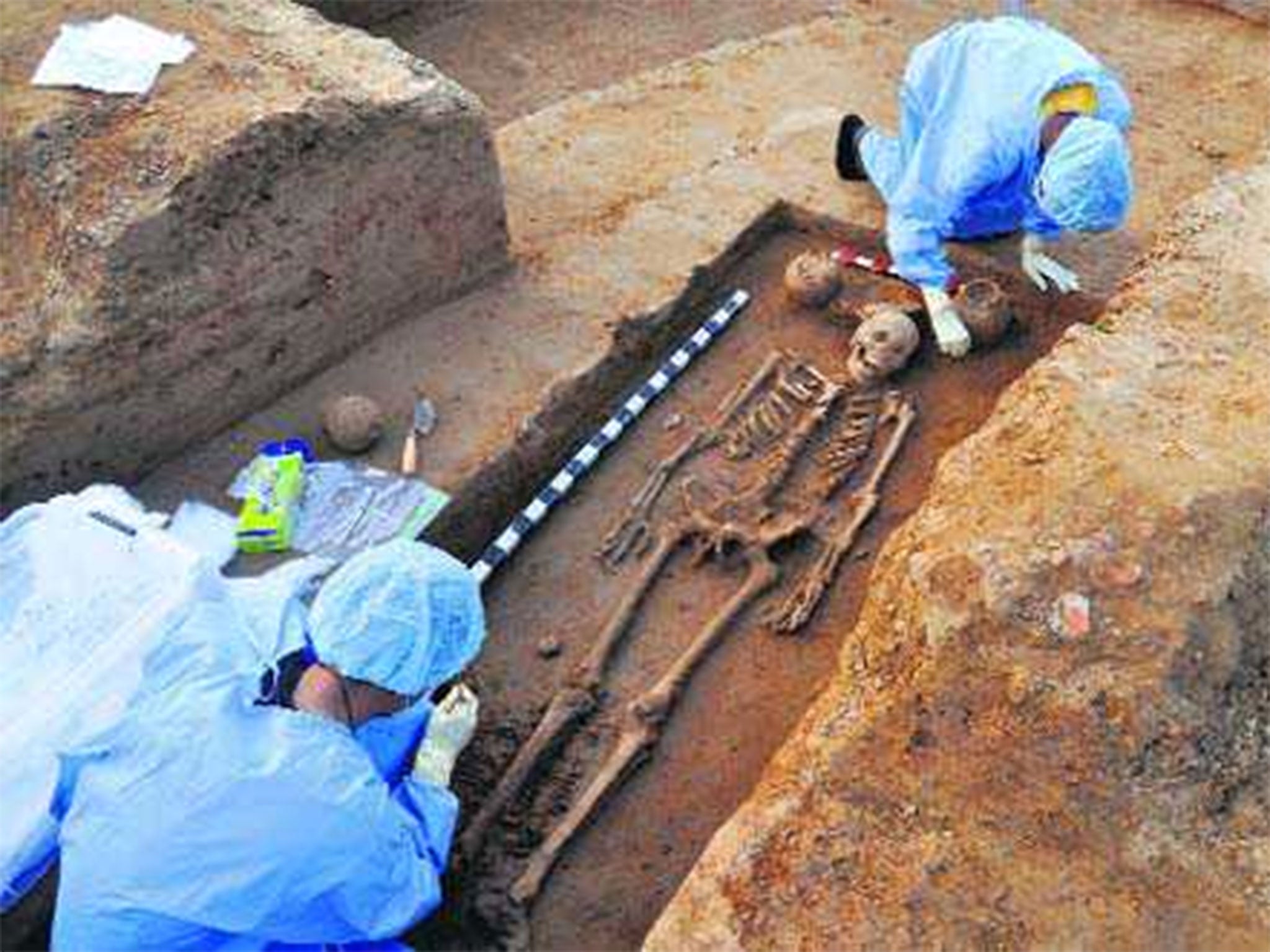Ancient skeletons found in India provide new insight into mindset of world's earliest humans
Forensic experts from South Korea will now attempt to reconstruct the ancient people’s DNA

Your support helps us to tell the story
From reproductive rights to climate change to Big Tech, The Independent is on the ground when the story is developing. Whether it's investigating the financials of Elon Musk's pro-Trump PAC or producing our latest documentary, 'The A Word', which shines a light on the American women fighting for reproductive rights, we know how important it is to parse out the facts from the messaging.
At such a critical moment in US history, we need reporters on the ground. Your donation allows us to keep sending journalists to speak to both sides of the story.
The Independent is trusted by Americans across the entire political spectrum. And unlike many other quality news outlets, we choose not to lock Americans out of our reporting and analysis with paywalls. We believe quality journalism should be available to everyone, paid for by those who can afford it.
Your support makes all the difference.Archaeologists in India have found a group of skeletons from one of the world’s most ancient civilisations, in a discovery which could provide clues to the origins of the first human settlements.
The remains date back to the Indus Valley Civilisation, which first emerged around 5,000 years ago and stretched across modern-day Pakistan, India and northeast Afghanistan.
Experts say the “well-preserved” skeletons belong to two adult males, a female and a child. They were discovered in a cemetery at Rakhigarhi village in Hisar, a large Indus Valley (also known as Harappan) site that has been worked on by a team from Deccan University since 2012.
Speaking to The Tribune, site co-ordinator Professor Nilesh Jadhav said a forensic team from South Korea’s Seoul National University would be arriving in July to carry out a high-tech evaluation of the site.
“With the help of forensic experts, we will try to reconstruct their DNA,” Prof Jadhav said.
“We tried doing the same with the help of a Japanese anthropologist five years ago, when a Harappan-era graveyard was discovered at Farmana village in Rohtak district, but failed,” he added.
Regardless of the outcome of the DNA research, scholars already say the find has shed new light on the Indus Valley people.
Researcher Malavika Chatterjee said toys were found during the excavation including “figurines of animals and mythical characters”.
She told the Hindustan Times: “A figurine of dog with a leash points towards their domestication aspect. Then we also found figurines of unicorns too, giving us impression about their mythical state of mind.”
Prof Jadhav said other items found in the graves hinted at an even bigger revelation.
He said: “We have found some material like pottery with grains of food, and shell bangles located near or around skeletons which enabled us to conclude that the settlers believed in reincarnation.”
Subscribe to Independent Premium to bookmark this article
Want to bookmark your favourite articles and stories to read or reference later? Start your Independent Premium subscription today.
Join our commenting forum
Join thought-provoking conversations, follow other Independent readers and see their replies
Comments